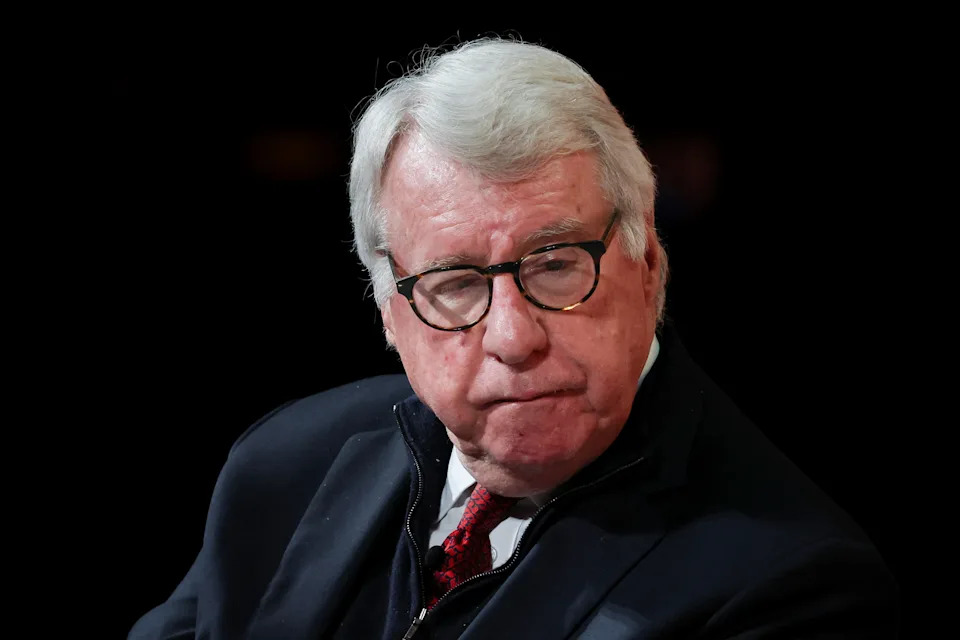
Wall Street’s hottest debate pits Jim Chanos against Michael Saylor
Key Points
- Jim Chanos Criticism: Prominent short seller Jim Chanos has intensified his critique of Michael Saylor’s bitcoin-focused strategy at MicroStrategy (MSTR), arguing that the company’s valuation exceeds the value of its bitcoin holdings and suggesting investors buy bitcoin directly.**
- MicroStrategy’s Bitcoin Holdings: MicroStrategy holds 597,325 bitcoins valued at approximately $64 billion as of June 30, making it the largest corporate holder, with its stock soaring 210% over the past year, outpacing bitcoin’s 80% gain.**
- Saylor’s Defense: Saylor counters criticism by highlighting the ease of owning MicroStrategy shares compared to bitcoin or ETFs due to regulatory compliance, and advocates for leveraging debt to amplify returns on bitcoin investments.**
- Wall Street Debate: The public feud between Chanos and Saylor has drawn significant attention on Wall Street, with Chanos labeling Saylor’s approach as “financial gibberish” and Saylor predicting Chanos’s potential financial ruin if MSTR stock rises.**
- Market Trends and Risks: Despite short sellers losing $3.6 billion betting against MicroStrategy in 2025, lawsuits and analyst concerns highlight risks tied to bitcoin volatility and the sustainability of MSTR’s debt-fueled strategy.**
Summary
Jim Chanos, a renowned Wall Street short seller, has escalated his criticism of Michael Saylor’s bitcoin-centric strategy at MicroStrategy (MSTR), calling it overvalued and advising investors to buy bitcoin directly. MicroStrategy, originally a software firm, now holds 597,325 bitcoins worth $64 billion, becoming the largest corporate holder, with its stock surging 210% in the past year, far outpacing bitcoin’s 80% gain. Saylor defends his approach, emphasizing the accessibility of MSTR shares over direct bitcoin ownership due to regulatory ease and promoting leveraged investments for higher returns. The public clash between Chanos and Saylor has gripped Wall Street, with Chanos dismissing Saylor’s model as “financial gibberish,” while Saylor predicts Chanos’s downfall if MSTR stock rises. Despite short sellers losing $3.6 billion betting against MSTR in 2025, the company faces lawsuits over misleading investors about bitcoin volatility risks and analyst warnings about the sustainability of its debt-driven strategy. Meanwhile, other firms are adopting similar bitcoin treasury strategies, intensifying competition for capital, though short sellers have profited more from betting against MSTR imitators.
yahoo
July 4, 2025
Crypto


